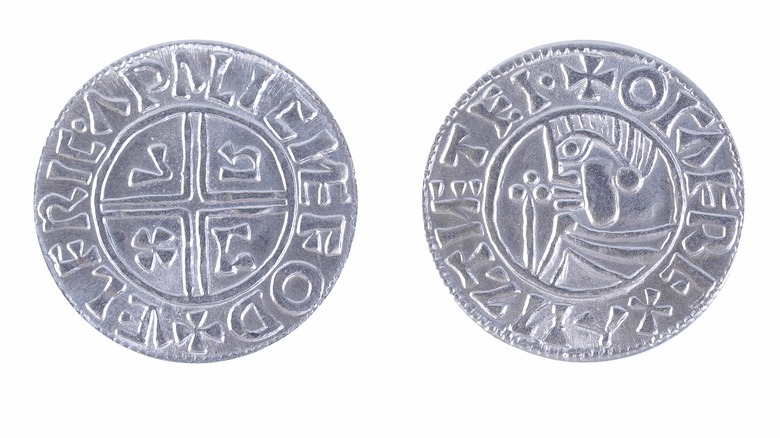The Unsolved Mystery Of The Maine Penny
In 1957, Guy Mellgren — a resident of Brooklin, Maine, and an archaeologist — discovered what he claimed to have been a 12th century English coin among fragments of Native American archaeological remains (via WFVX). The find did not garner much attention until 1978, well after Mellgren had died. Upon analysis, the corroded coin was found to not have been English at all, but instead an 11th century Norwegian coin.
That also happens to have been the same century in which Leif Erickson made his voyage across the Arctic to North America (via Britannica). The presence of Scandinavian explorers in the area of northern Canada has long been accepted since the discovery of ruins there in 1960 (via Forbes). However, the idea that traces of them had traveled as far south as Maine still has minds racing as to whether this single small coin was a legitimate find or a complex ruse.
The Maine Penny is real, but its supposed journey to America might be fake
The authenticity of the "Maine Penny" has generally been accepted, given its physical age and the fact that it was not a copy of an existing coin. Moreover, Mellgren died without ever claiming it as Norse and never sought wide publicity, leading many to believe his account of the coin's English origin (via did you know?). There is no good explanation for how the coin wound up in Maine, though if the damaged portion of the coin was originally a hole as many speculate, it may have been used as a necklace by either an Indigenous person or a Norse explorer.
Then again, while Mellgren did not seem to act conventionally for someone who either made a legitimate find or pulled off a hoax, the latter can't be ruled out (via Grand Rapids Coins). According to Atlas Obscura, he was a collector of historic coins, apparently subscribed to the theory of Vikings in the Americas, and similar authentic coins to the "Maine Penny" could be bought in the 1950s. If the entire thing is a hoax, it could be that Mellgren acquired the coin and, in an act of intentional misdirection to alleviate any suspicion, made himself appear clueless as to what he "found."

